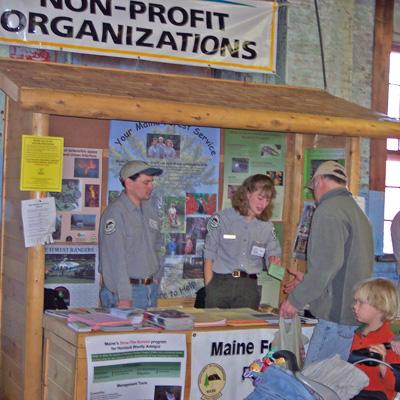The Forestry Community, Belief Systems and Consensus: Implications for Public Communication and Outreach

Organizations and businesses in the forestry community that are interested in use, management, or protection of forests rely on education as a communication tool for improving the public’s ability to make informed decisions about important forest issues and policies. However, the public may find forest resource-based messages conflicting or complex, which may lead to greater misunderstanding, mistrust, and misinformation. Improving forest-based education requires a better understanding of educators and their perceptions, experiences, values, and beliefs that may influence development of educational messages and programs.
NSRC researchers interviewed environmental educators from 23 forest-based organizations in Maine about themselves and the education they perform. Aside from providing valuable input on influences of forest values and beliefs, participants’ responses suggest the importance that identity and life experiences provide in their work. Participants frequently mentioned outdoor life experiences as children, with family, and with professional foresters. Their early outdoor life experiences in Maine have made a tremendous impact on how these educators view the state’s resources and consequently contribute to the personal goals, values, and beliefs they work toward within their education and outreach efforts. Researchers discovered that educators all hold strong beliefs toward ensuring the continuation of Maine’s forests.
These commonalities among Maine’s many forest-based organizations suggest that collaboration may be possible, despite diverse views toward uses and management of the state’s forests. A collaborative educational venture would provide forest organizations with opportunity to develop clearer, more concise, and unified forest-based messages, which in turn may lead to improved understanding and support in the general public.
Download printable version [PDF]
Download full final report [PDF]
